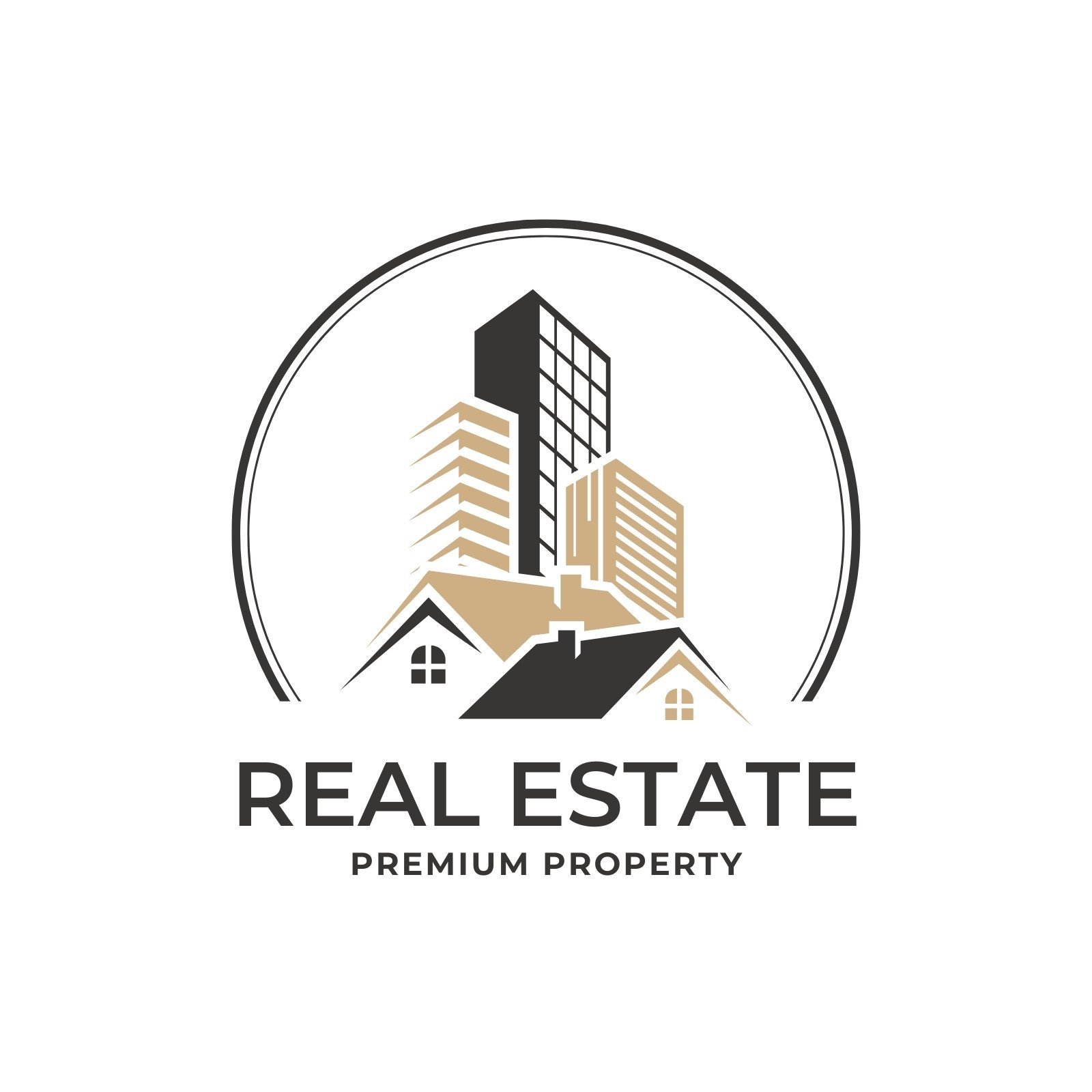
Commercial property (CRE) describes residential or commercial properties used for organization functions, such as retail areas, office complex, hospitals, and more. Unlike residential or industrial property, CRE is thought about a more steady investment due to longer rent terms spanning 5 to 10 years.

This post guides you through the fundamentals of business genuine estate, including essential meanings, the differences between business, property, and commercial realty, and tips for purchasing CRE.

Whether you're aiming to invest, lease, or work within the market, this thorough overview will provide the fundamental knowledge you require to be successful.
What are the main types of business property?
Commercial realty (CRE) includes various residential or commercial property types, each serving different service requirements and investment opportunities. The primary classifications are workplace spaces, multifamily structures, retail residential or commercial properties, and commercial centers. [1]
Office range from single-tenant structures to large workplace parks.
Multifamily residential or commercial properties, like apartment complexes, use rental income from housing multiple families.
Retail residential or commercial properties include shopping centers and standalone stores where services sell straight to customers.
Industrial residential or commercial properties, such as warehouses and factories, are used for manufacturing and storage.
Hotels, from budget plan motels to luxury resorts, supply accommodations for tourists
Self-storage facilities provide rentable space for keeping personal or organization products.
Land for future development, or agriculture, also falls under CRE.
Non-competitive CRE consists of healthcare facilities, schools, and government structures running under various market characteristics. Each kind of CRE provides special opportunities and difficulties for investors.
How do investors worth commercial realty?
Investors worth possible commercial genuine estate opportunities on a number of factors:
Location: The value of area differs by market. For example, multifamily residential or commercial properties need to be near schools and grocery stores, while storage facilities should be near highways, airports, and rail lines.
Residential or commercial property condition: Older or inadequately preserved structures tend to have lower values than newer, properly maintained ones.
Market need: The need for particular residential or commercial property types can influence values. High demand can offset some unfavorable effects of a bad location or condition, while low demand can worsen these issues.
Location, condition, and market need assistance financiers classify investment residential or commercial properties into three broad classifications: Class A, Class B, and Class C. Next, we'll take a look at each class in more detail.
Commercial Realty class types
Class A Real Estate
Class A genuine estate is the top tier of industrial property. It usually boasts the best areas, remains in outstanding condition, and enjoys high need. These residential or commercial properties frequently draw in outstanding tenants willing to pay additional for the advantages of a premium residential or commercial property.
Class A property represents the least risk for investors because you're less most likely to fret about major upkeep or repair work concerns or occupants going illiquid. However, Class A residential or commercial properties require a significant quantity of capital to invest due to their high entry expense.
Class B Real Estate
Class B property is the mid-tier for commercial residential or commercial properties. They do not examine all the boxes like Class A residential or commercial properties do, but they're still general excellent opportunities.
These residential or commercial properties might have minor upkeep issues however aren't extremely high-risk. With some updates, Class B residential or commercial properties have the potential to be updated to Class A.
Class B realty offers a balance of threat and benefit. They're more budget-friendly than Class A residential or commercial properties, making them more accessible to a larger pool of financiers. At the very same time, they carry less threat than Class C residential or commercial properties and typically have enough need to remain rewarding.
Class C Real Estate
Class C property is the most affordable tier of industrial residential or commercial properties. Typically, these structures are at least 20 years old, have high upkeep costs, and lie in less desirable areas. They often attract markets with high occupant turnover, leading to unsteady income.
While Class C real estate is higher-risk, it's also the most inexpensive business property classification. For experienced investors, Class C realty can provide excellent returns on financial investment, as they require less in advance capital. Also, with strategic upgrades and restorations, a Class C residential or commercial property can be elevated to Class B, increasing its worth and success.
What are the kinds of industrial property leases?
Single-Net Lease (N)
In a single-net lease (N), the occupant pays the lease and residential or commercial property taxes while the property owner covers the other expenses, such as repair work, maintenance, and insurance. Compared to the various lease types, single-net leases are fairly uncommon in business realty.
A single-net lease can appear unsightly for landlords given that it puts much of the concern of maintaining the building on them. However, if demand is lukewarm, using a single-net lease can be a great method to draw in more prospective occupants who would choose a residential or commercial property without stressing over maintenance and insurance coverage costs.
Double-Net Lease (NN)
In a double-net lease (NN), the occupant covers lease, residential or commercial property taxes, and insurance, while the landlord spends for repair work and maintenance.
Double-net leases can assist draw in a large swimming pool of tenants who desire to prevent upkeep expenses but aren't intimidated by residential or commercial property tax and insurance coverage payments.
However, as the landlord, you must be relatively closely included in managing the residential or commercial property to deal with repairs and maintenance. For Class C realty and some Class B residential or commercial properties, maintenance costs can be high and may quickly eat into your earnings.
Triple-Net Lease (NNN)
In a triple-net lease (NNN), the occupant pays for all expenditures in addition to lease. This includes residential or commercial property taxes, insurance coverage, and upkeep.
Since the expenses are the occupant's duty, a triple-net lease uses considerable advantages to landlords, who do not require to be as straight associated with the day-to-day management of the residential or commercial property and can rely on a more consistent earnings.
However, you might find less demand for triple-net leases than other net lease types. Especially in slower markets, renters might have more choices for double-net or perhaps single-net leases where they won't need to fret about upkeep costs.
Gross Lease
In a gross lease, the occupant is only responsible for the rent, while the landlord deals with all other costs.
With a gross lease, you can charge a higher rent to cover the costs of taxes, insurance, and upkeep. Tenants are likewise typically much easier to discover considering that a gross lease is easier for them.
However, as a proprietor, you will need to be more involved in the day-to-day operation of the residential or commercial property. There is likewise the risk that an unforeseen repair work or upkeep problem could cost more than the lease covers.
How can I purchase industrial real estate?
You have numerous alternatives for buying industrial real estate. While simply purchasing a business residential or commercial property has the capacity for high returns and tax benefits, it also involves the best dedication in regards to capital and time.
For more passive earnings, you may think about property financial investment trusts (REITs) and investing platforms. Here's a rundown of your options.
Buy a business residential or commercial property
- Built equity
- Passive earnings through long-lasting leases
- Potential returns up to 12% or greater
- Big in advance investment
- You may be accountable for repair work, maintenance
You can buy an industrial residential or commercial property outright, alone or with other investors. Kinds of business residential or commercial properties consist of office complex, multifamily residential or commercial properties, retail areas, and commercial residential or commercial properties. Dealing with an experienced industrial realty representative is essential.
Owning business residential or commercial property lets you acquire equity gradually (just as you would with residential realty) and generate passive income through leases. Commercial leases often extend for 10 years or more, that makes them fairly stable. While the return on financial investment for a commercial residential or commercial property varies depending upon the location, market, and local economy, a yearly return of in between 6% and 12% is common.
However, buying business residential or commercial property needs substantial capital upfront, or you'll need to partner with other financiers (which will mean a smaller sized share of the revenues). Also, you could be accountable for maintaining the structure, and you may have to get ready for durations without tenants, specifically throughout economic downturns.
Property investment trusts (REITs)
- Low capital requirements
- Residential or commercial property diversity
- Generates passive earnings
- No property owner responsibilities
- Lower returns
- No equity buildup
- Risk of financial investment loss
Realty financial investment trusts (REITs) own and collect rent on realty, distributing that earnings to financiers as dividends. Listed on stock market, REITs can be invested like any other stock.
This makes REITs highly accessible to investors with restricted capital, permitting them to gain from routine dividend payments and any REIT's value gratitude without acquiring residential or commercial property straight. As an outcome, financiers don't need to stress over maintenance, vacancies, or problem occupants.
In addition, REITs typically give investors direct exposure to a varied portfolio of residential or commercial properties found in several markets, providing added diversification. For example, Real estate Income Corp., a REIT traded on the New York Stock Exchange, buys a wide range of commercial property and has a portfolio of over 15,450 residential or commercial properties across all 50 U.S. states, the U.K. , and 6 other European nations.
While REITs are lower risk than purchasing business residential or commercial property outright, the rewards are also significantly minimized. You will not gain from any of the equity you 'd have constructed as an owner. Plus, the roi might be lower. For example, the average annual dividend for REITs in 2023 was just 4.09%. [2]
Just like any equity, you likewise run the risk of losing some or all of your financial investment if the worth of the REIT decreases.
Property investing platforms
Pros
- Low minimum investment quantities
- No residential or commercial property management needed
Cons
- Higher threat than REITs
- May charge high fees
- May only be offered to wealthy financiers
Realty investing platforms (also called property crowdfunding) pool capital from a large group of investors to purchase and operate income-generating genuine estate. Popular platforms consist of Fundrise, CrowdStreet, YieldStreet, and RealtyMogul.
Like REITs, you're not accountable for the everyday management of the residential or commercial properties, such as maintenance and collecting rent, and you can invest with a little amount of cash.
Unlike REITs, these platforms are often tied to simply one residential or commercial property, which opens up the potential to make higher returns.
However, the reality that your financial investment may be tied to just one or a handful of residential or commercial properties exposes you to more danger if the project stops working. Also, platforms often charge costs for investing and some are only available to certified investors.




